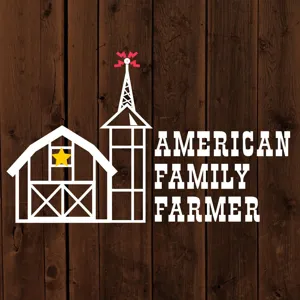In episode 269, Kestrel welcomes Ngozi Okaro, the founder and executive director of Custom Collaborative, to the show. Custom Collaborative trains, mentors, and advocates for and with no/low-income and immigrant women to build the skills necessary to achieve economic success in the sustainable fashion industry and broader society.
“I think that if workers owned the business, if the people who are actually putting in the labor are also owners, then they’re less inclined to overproduce, because it’s just their time and their resources that they’re wasting. So, I think that cooperative is important for both local economies, I think also for the environment and also for human rights.” -Ngozi
This week, we are talking about cooperatives, and the ways that worker-led fashion production can truly shake up the industry.
Power dynamics are a topic that comes up a lot on the show – and something that was discussed in depth throughout The Root, the 6-part series co-produced and hosted by Dominique Drakeford. Conversations around the distribution of power within the fashion space are imperative, but in the mainstream space, they often lead back to this assumption that well, we exist within a capitalistic system, and this is how the fashion system works, so we have to work within it.
Ok – yes, agreed that we must work within it to transform the way that big business is operating – through advocating for transformation and through regulation. But also – I’m super interested in the ways in which alternative business models can literally showcase in practice the ways in which other frameworks work.
This week’s guest is the founder and executive director of an organization that is building alternative models – in her case, through a New York-based worker-led cooperative.
As she reminds us, cooperative ownership can actually counter overproduction – so it’s not simply a model that is important for human rights, it’s also a framework that can address the industry’s waste issues and support local economies.
Quotes & links from the conversation:
-
Dennis Derryck, Professor at The New School, who has become a mentor to Ngozi
-
“So, for us, cooperative is good because workers are owners — they can make the desicisions and share equity. And secondarily, it’s helpful because if there are people who don’t have work authorization, cooperative owners are legally able to work in the U.S.” -Ngozi (18:04)
-
“How Employee-Owned Fashion Co-Ops Are Challenging Sweatshop Production”, article in The Good Trade Kestrel mentions
-
“People who work in worker cooperatives generally have greater satisfaction, the businesses have more insights because people who are actually doing the work feel like they can bring to light ideas, they can make suggestions for making the business better.” -Ngozi (20:52)
-
Opportunity Threads, a worker cooperative in North Carolina that Ngozi spoke to early in Custom Collaborative’s development
-
“I think that if workers owned the business, if the people who are actually putting in the labor are also owners, then they’re less inclined to overproduce, because it’s just their time and their resources that they’re wasting. So, I think that cooperative is important for both local economies, I think also for the environment and also for human rights.” -Ngozi (25:24)
-
“Where fashion is failing women, and where it’s showing up”, article in Vogue Business which features quotes from Ngozi
-
“It’s great to acknowledge women and to celebrate them, but I do think it’s a year round thing — it’s not just March 8th or the month of March. It’s really about including women in decision making and centering women when we’re thinking about what to do next with a company.” (29:29)
-
“When Custom Collaborative started in 2016, and even when I was planning in 2014 and ‘15, I didn’t hear anybody talking about human rights and fair wages being part of sustainability. And I remember when I used to talk about it on panels and in interviews and just with people in general, a lot of times people would look at my oddly like I didn’t know what I was talking about. But I feel like now in 2022, it’s more a part of the conversation.” -Ngozi (33:21)
-
An interview with Ngozi for the CFDA
-
An interview with Ngozi for Musings Magazine
-
Custom Collaborative
-
Donate To Custom Collaborative >
-
Follow Custom Collaborative on Instagram >



